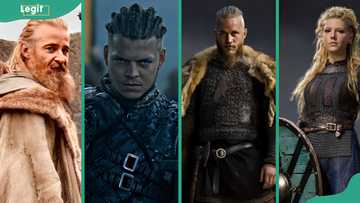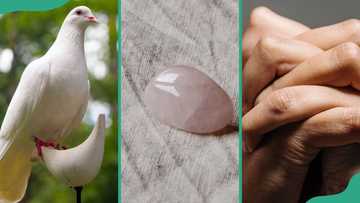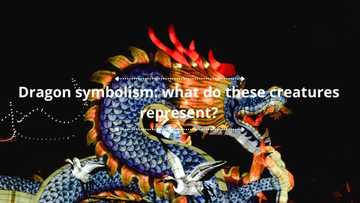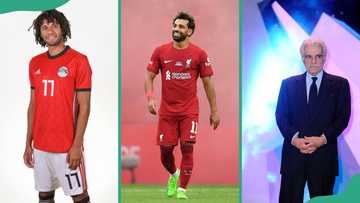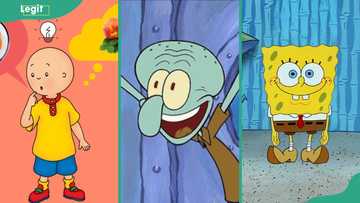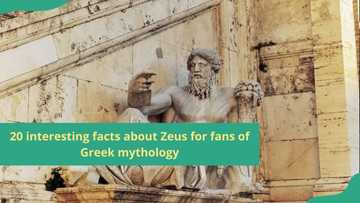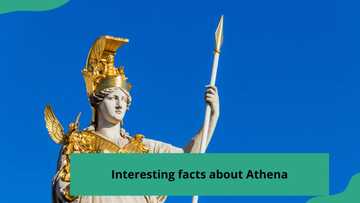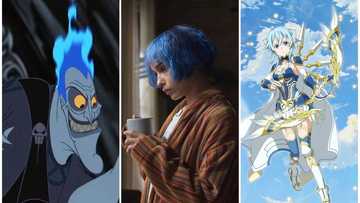12 Norse gods and goddesses: Complete guide to their names and powers
Virtually all ancient civilizations believed they weren't alone in the universe. That is true for the Norse, who attributed their existence to otherworldly beings. Norse gods and goddesses were mystical deities regarded as creators, protectors, and destroyers. These supreme beings played central roles in Norse mythology, shaping people's beliefs about life, death, and the cosmos. Here is a list of iconic Norse gods and goddesses and their powers. Professor Carolyne Larrington, an expert in Medieval European Literature at the University of Oxford, offers insights into the Norse gods, highlighting their distinct characteristics and associated symbols.
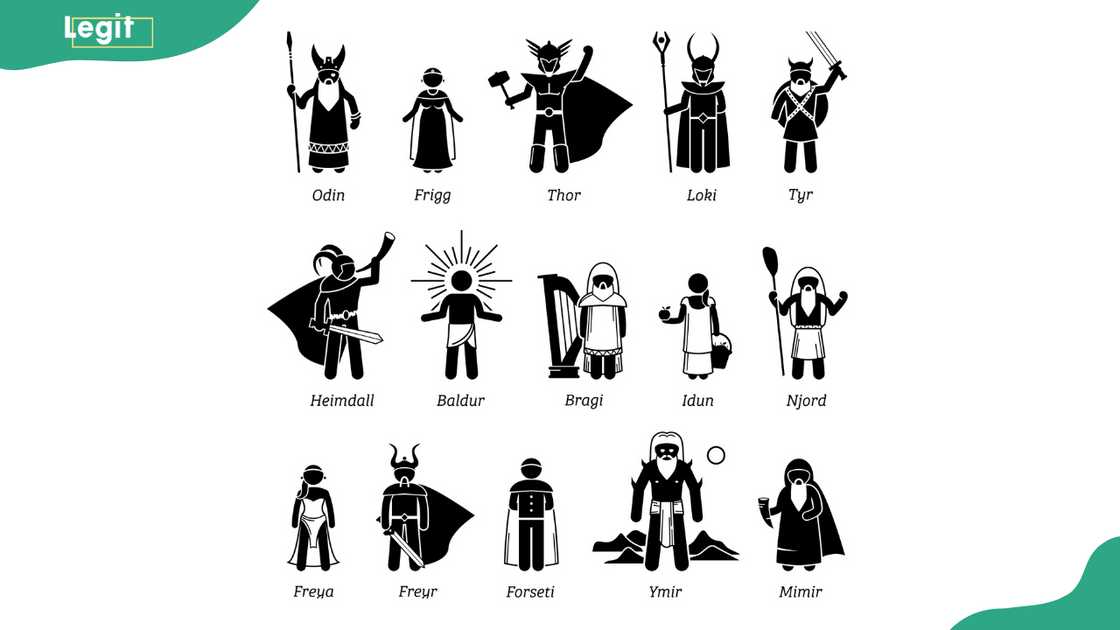
Source: UGC
TABLE OF CONTENTS
The Norse were ancient people who inhabited what is present-day referred to as Scandinavia (Sweden, Denmark, Iceland, and Norway). Their mythology stems from Norse paganism and has persisted even after the Christianization of Scandinavia. The Norse societies were polytheistic and had a rich pantheon of gods and goddesses who influenced their world.
Origins of Norse gods and goddesses and their symbols
The Norse creation story begins with two worlds: icy Niflheim and fiery Muspelheim, separated by a bottomless abyss called Ginnungagap.
As the two realms clashed, water droplets formed, giving rise to the first living being, Ymir. After his demise, other beings used his body to create the Nordic mythological Universe and became the first gods.
But how many Norse gods are there in the beginning? Ymir's descendants were divided between two clans, namely, Aesir (warrior gods) and Vanir (fertility gods). The exact number of gods and goddesses in each clan is unknown.
Despite their constant inter-clan fighting, these gods learned to coexist and add essence to life. Below is a list of iconic Norse god names and their symbols.
1. Odin
Odin, also called the "All Father" or "The Ruler of the gods," is the Norse god of war, wisdom, poetry, and magic. He had an insatiable quest for knowledge and power and was often accompanied by his ravens and wolves. He killed Ymir and crowned himself king of Asgard.
Odin is a one-eye god who sacrificed his other eye to see the Universe. His symbol is the Valknut, a knot representing slain warriors. His pursuit of knowledge and critical role in the prophetic apocalypse (Ragnarok) make him a respected figure among the Aesir gods.
2. Thor
Thor is the Norse god of thunder known for wielding a mighty hammer, Mjölnir—a gift from his father. He is a central figure in Norse mythology, celebrated for his strength and bravery. Thor is the son of Odin and Earth and probably the most famous Norse god.
His hammer bears the inscription, "Whosoever holds this hammer, if he is worthy, shall possess the power of Thor," which is a testament to his strength. He has red hair and a flowing beard and moves in a chariot pulled by two magical goats. Thor protects humans and gods from chaos and is pivotal in the Norse universe.
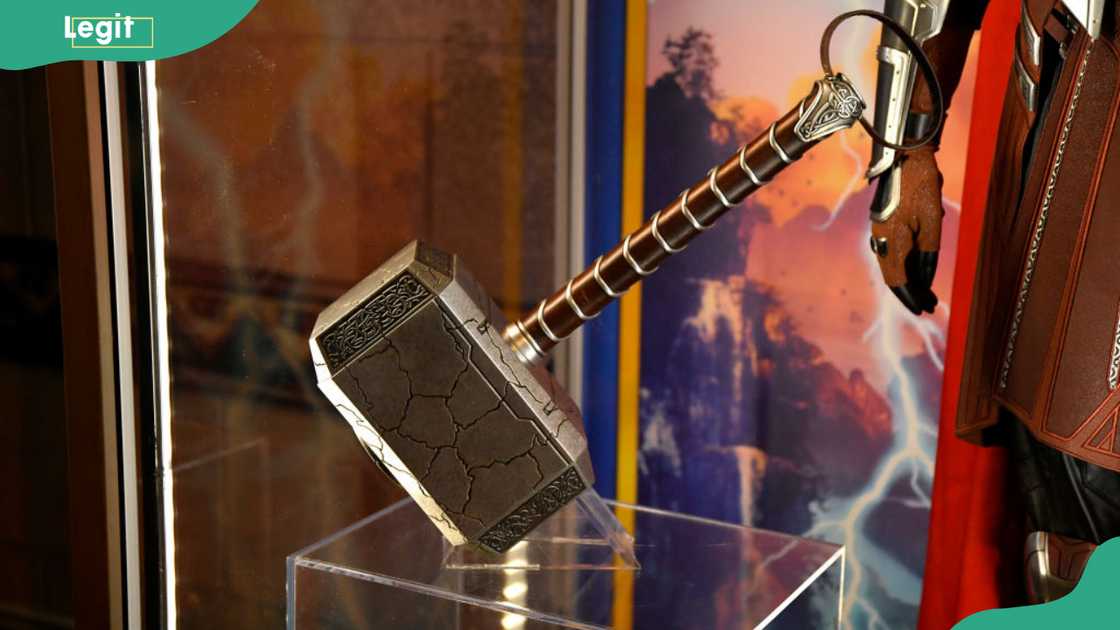
Source: UGC
3. Frigg
Frigg is among the most revered Norse goddess names. He is from the Aesir clan and wife to Odin, "The Ruler of the gods." She is the goddess of marriage and motherhood. Her name is associated with love and fertility and symbolizes family bonds.
She is Thor and Balder's mother and the queen of Asgard. Frigg is depicted as a wise, nurturing, protective, and loving goddess. One aspect distinguishing her from Freya is her power to foretell the future.
4. Freya
Freya is another powerful Norse god name from Scandinavia. She holds the esteemed title of the goddess of love, fertility, beauty, and war. She is the daughter of Njord and sister to Freyr.
Freya has an iconic necklace symbol and travels in a chariot pulled by two cats. She is the leader of the Valkyries (warrior women) who chooses the slain warriors for the afterlife. Her multifaceted roles make her the most revered goddess in Norse mythology.
5. Vidar
Vidar was described as the silent avenger of Norse mythology. He was Thor's half-brother and son of Odin, often associated with vengeance and retribution. Vidar was considered the second strongest after Thor and was one of the few chosen Norse god names to survive Ragnarok.
6. Njord
Njord was the Norse god of the sea, wind, fish, and wealth. He was also the leader of the Vanir clan, one of two factions that created the Universe. As the father of twins Freya and Freyr, his name is held in high regard in Asgard as the parent of two significant deities.
Njord's dominance over the sea symbolizes maritime prosperity and the connection between land and sea. He is considered the property of fishermen and voyagers. Despite hailing from the Vanir clan, he signed a treaty to become an honorary member of the Aesir.
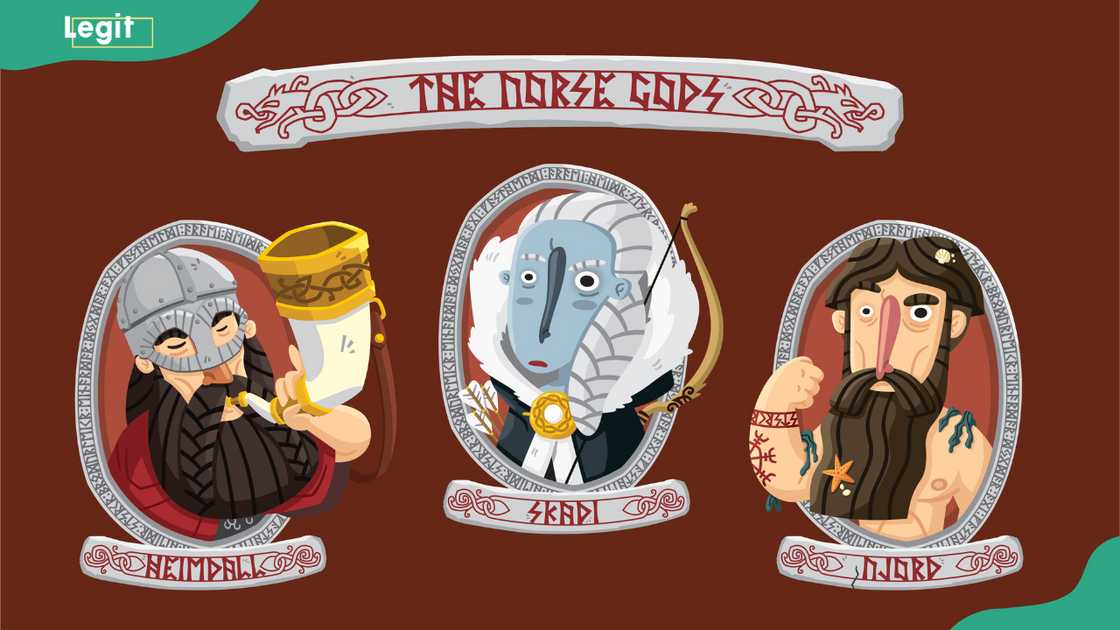
Source: UGC
7. Freyr
Freyr was the brother of Freya and the son of Njord. He was a popular god who represented male fertility and virility, as statues and renditions of him often feature an oversized phallus. Freyr also symbolizes peace, prosperity, and abundance.
Freyr is a benevolent deity who invokes success and prosperity and is highly significant in Norse cosmology. Both mortals and gods recognized him as the sole granter of abundance. He was thought to be the ancestor of the Swedish royal family.
8. Heimdall
Heimdall, the Norse god of war, possessed extreme reflexes, acute hearing, and the power to foretell the future. His unmatched senses enabled him to hear even grass growth from long distances. He was obsessed with the end of the world and its subsequent rebirth (called Ragnarok) and stood as the gods' watchman.
He served as the guardian of Bifröst, a celestial bridge connecting Asgard to Midgard. He was fixated on the idea of Ragnarok and spent his time guarding Bifröst, the rainbow bridge.
9. Loki
Loki was the notorious trickster god in Norse mythology. He was Odin's brother and endured a mixed relationship with the Aesir clan. Loki possesses shape-shifting abilities, which enable his trickery. He is famous for being involved in Balder's death, which sets the stage for the cataclysm foretold in Ragnarok.
10. Balder
Balder was Thor's brother and son of Odin and Frigg. He was thought to hail between heaven and earth, somewhere in the realms of Midgard. He symbolized radiance, fairness, and kindness and was described as the god of light and purity.
Balder was considered immortal but had one terrible nightmare where he dreamed about his death. He was killed with mistletoe, an ordeal that Loki orchestrated.
11. Hel
In Norse mythology, Hel represented the goddess of the underworld, Helheim. She had ashen skin that looked as though she was dead. He was the custodian of the slain souls that somehow found their way to the underworld.
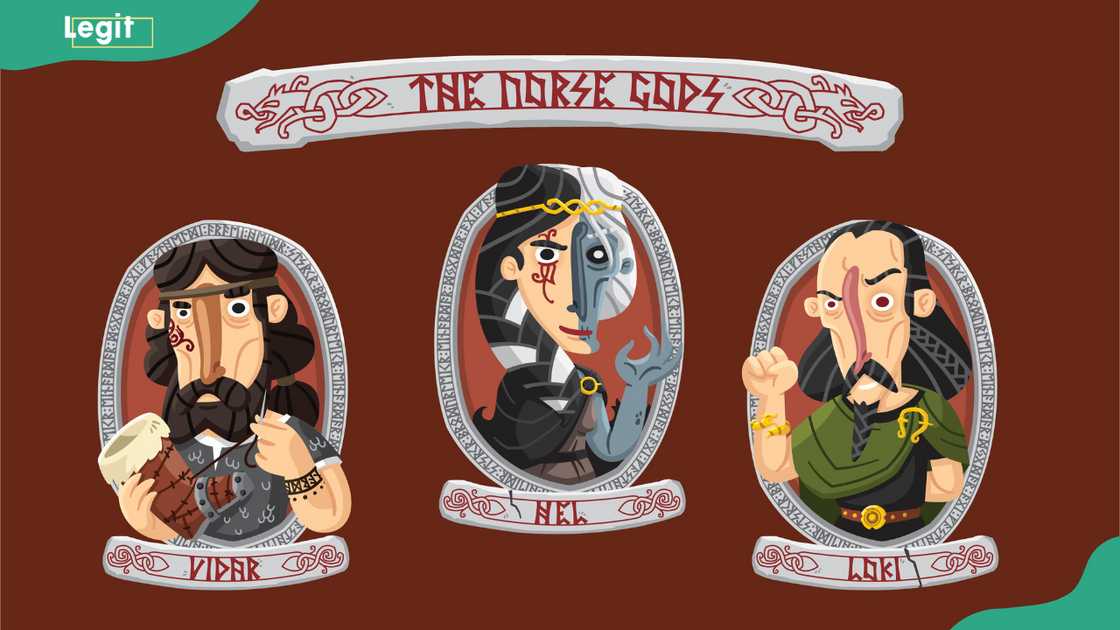
Source: UGC
12. Vale
Like Vidar, Vale was Thor's half-brother and one of Odin's children. His existence in Norse mythology was to fulfil prophecies. One interesting aspect about Vale is that he was a fast grower who reached adulthood within a day of birth. His principal mission was to avenge Balder's death by killing Hodr—the blind god tricked by Loki to throw mistletoe towards Balder.
Norse gods vs gods in other mythologies
Professor Carolyne Larrington, an expert in Medieval European Literature at the University of Oxford, explained in an interview the striking difference that distinguishes Norse gods from gods in other mythologies like Greek and Roman traditions, which she said is their mortality. Professor Larrington explains:
They know they will mostly die at ragna rök, the end of the world when their enemies (the giants) and the cosmic monsters advance against them. Some will return to the new world that arises again after the catastrophe.
Furthermore, the expert mentioned that the Norse gods are divided into two main groups:
1. Æsir – This group includes major figures like:
- Odin
- Thor
- Frigg
- Loki (who is half-giant)
- Baldr
2. Vanir – They are associated with fertility. They include:
- Njord and his two children - Freyr and Freyja
In creation myths, Professor Larrington said Odin and two lesser-known gods - Hœnir and Lodur – created humanity from driftwood (ash and elm) found on the seashore. She said:
There's a long-standing connection between humans and trees in Norse; trees are often used as poetic metaphors for men and women, as in 'apple-tree of weapons' (man, fighter) or 'maple of necklaces' (woman).
Norse gods: common symbols and artifacts
Professor Larrington said symbols or artifacts associated with specific Norse gods and goddesses are often less definitive. She explains:
- Odin has his spear. He is one-eyed and wears a hat or hood drawn over his missing eye. He is associated with the runic writing system and has two ravens, Hugin and Munin (Thought and Memory), who bring him news daily.
- Thor has his great hammer, Mjölnir, which kills giants, and his magic belt of strength. Goats draw his chariot, which can be killed and eaten at night and reconstituted the following day.
- Freyr has a boar with golden bristles (Gullinbursti), which he can ride, and a ship (Skidbladnir), which he can fold up and put in his pocket.
- Freyja has her great necklace, the Brisinga Men, which she gained by sleeping with the four dwarfs who crafted it (one night each).
- Baldr, the best and brightest of gods, was killed by a dart made of mistletoe.
- Ullr is the god of the bow.
- Heimdallr is the watchman of the gods and carries the great Gjallarhorn, which he will sound when ragna rök comes.
Who is the most famous Norse god?
Thor is perhaps the most famous Norse god in modern culture. Even after the spread of Christianity in Scandinavia, Norse mythology continues to increase in popular culture. For example, Thor is depicted in Marvel Comics as a superhero, enabling him to reach a global audience.
What are the main Norse gods called?
The main gods in Norse mythology are depicted as leaders in battle, often rallying other gods, immortals, and warriors against common enemies. Odin is the chief god, "The All-Father." However, Thor is also a main god, thanks to his formidable hammer, which allows him to protect humans against monsters, giants, and forces of chaos.
Who are the 12 in Norse mythology?
The 12 refers to Norse mythology's most important gods and goddesses. They are described as Aesir and living in Asgard. They include Odin, Thor, Balder, Vidar, Vale, Brage, Heimdall, Tyr, Njord, Froy, Ull, and Forsete.
Many generations of the Norse people have passed down stories about their rich mythology. Myths about Norse gods and goddesses were handed down in poetry as early as the 11th century. Today, folklore of gods in Scandinavian countries intrigues people of all ages.
Legit.ng recently published an article about African gods and goddesses. African mythology is filled with tales of gods and goddesses believed to have crafted the world and guided human lives.
These deities each have unique traits, powers, and responsibilities. Across Africa, different regions honor and worship their own set of divine beings. Explore this collection of African gods and goddesses and discover their remarkable powers.
Source: Legit.ng

Mercy Mbuthia (Lifestyle writer) Mercy Mbuthia is a content writer with five years of experience writing on various topics, including biographies, entertainment, and lifestyle. She joined the Legit team in 2019. Mercy earned a Master of Science (Food, Nutrition & Dietetics) from Dedan Kimathi University in 2022. Her articles have appeared on several media sites such as The Health Channel, The Nation, Tekrati, ValiantCEO and Celebrity Leader. In 2023, Mercy finished the AFP course on Digital Investigation Techniques. Email: mercymmbuthia18@gmail.com

Mary Ugbodaga (Lifestyle Journalist) Mary Ugbodaga is a Legit.ng journalist with 7 years of experience in journalism and media communications. She graduated from Covenant University in 2018 with a Bachelor's degree in Mass Communication/Media Studies. Mary previously worked as a journalist at TheCable, CNBC AFRICA, Voice of Nigeria, KPMG Nigeria. Email: mary.ugbodaga@corp.legit.ng.


